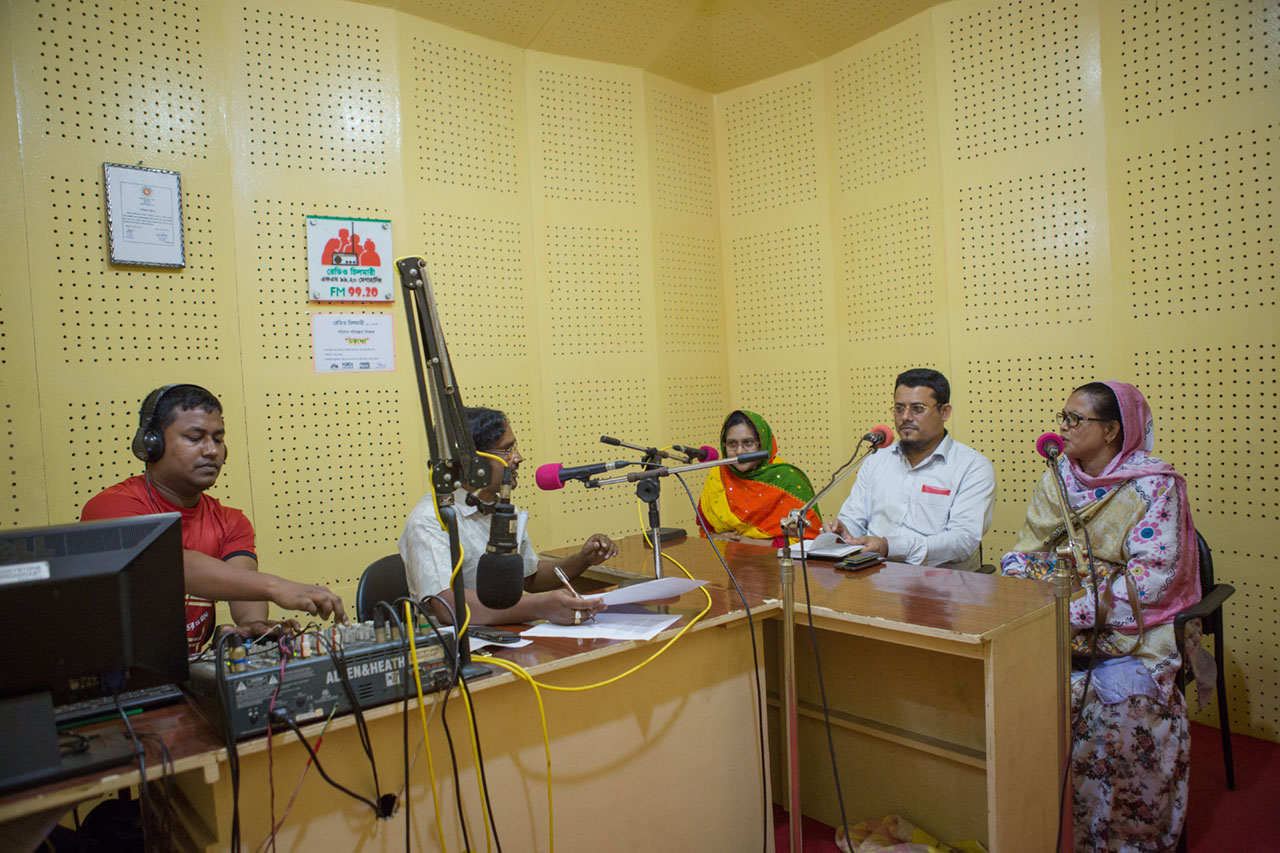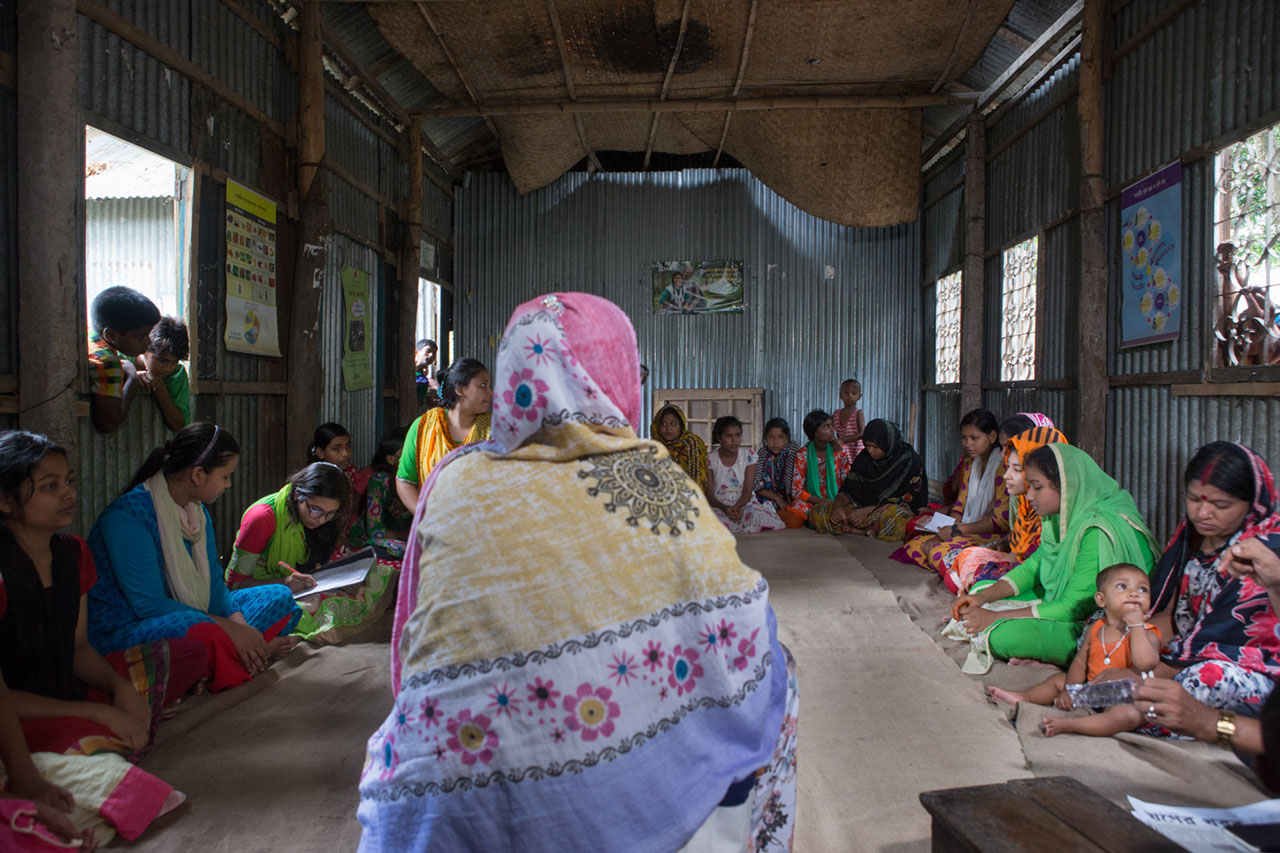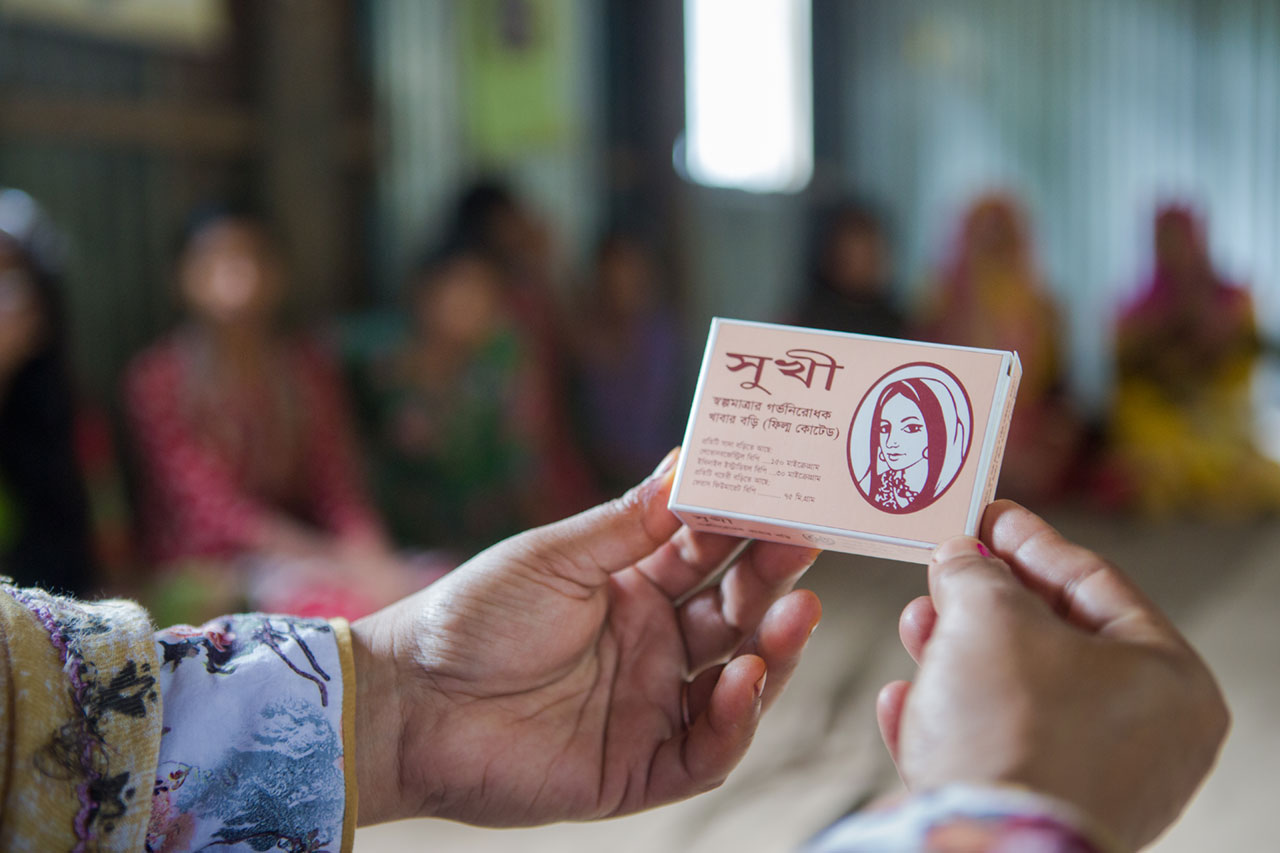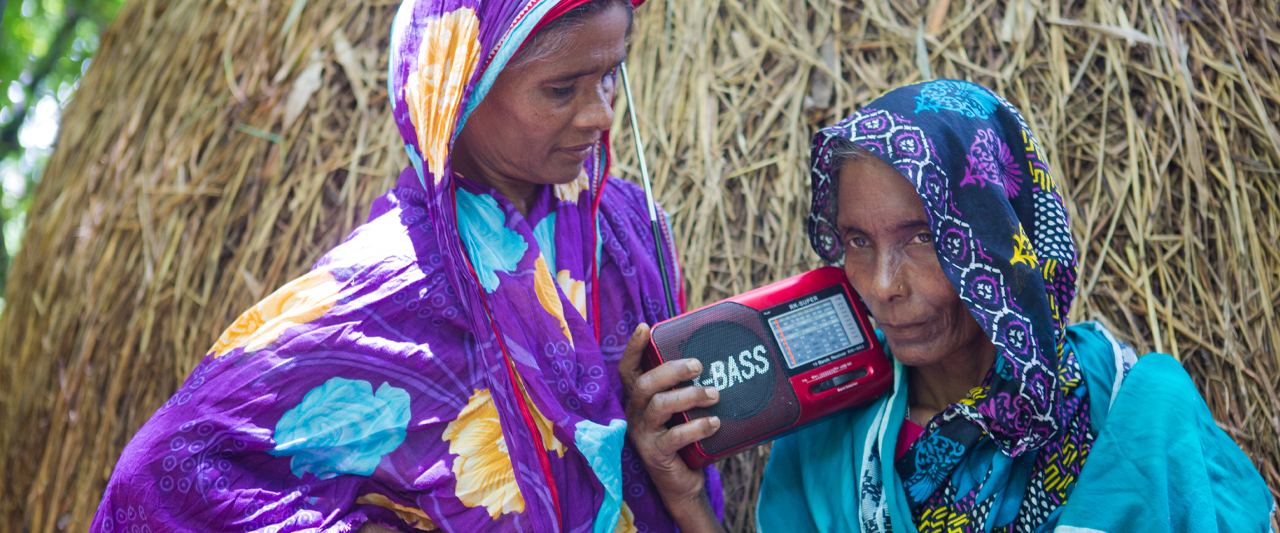If you’re listening to FM radio 99.2 in Moulvibazar District in the northwest region of Bangladesh, you’ve landed on Radio Pollikontho, a community radio station with daily programs reaching about 400,000 people. Members of the station’s more than 700 listeners clubs can tune in for information on a variety of agricultural, education and health-care issues.

A live radio talk show in progress [Photo © Farzana Hossen]
As part of a multi-year project launched by Ipas Bangladesh and partners in 2017, listeners can now join a club devoted to reproductive health, with a focus on modern contraception. Presented in a radio-magazine style, this club lets listeners know where contraceptive services are available locally and provides information to dispel the many cultural and religious myths about contraception, particularly with respect to long-acting methods.
Women like Sreemati (identified here by her first name only), a married mother of two, are among those who have turned to Radio Pollikontho for this kind of information. She lives in what is known as a “Horizon community” in Moulvibazar, where the main form of employment is sweeping and cleaning human wastes and sludge. In Bangladesh, Sweepers are a socially isolated and neglected community of the society.
After listening to the family planning programs, Sreemati decided that, living on a small income and with two children already, she wanted to consider limiting the size of her family. She reached out to Radio Pollikontho, which linked her to a local welfare assistant, and, after discussion with her husband, she decided to get a long-acting contraceptive implant.
The need for contraception
Nearly half of all pregnancies in Bangladesh are unintended. According to a Guttmacher Institute report, 2.8 million pregnancies in Bangladesh in 2014, accounting for 48 percent of all pregnancies, were unintended. While Bangladesh has seen success with family planning programs in recent decades, the percentage of couples using contraception has not risen significantly in recent years, and there has been a consistent decline in the use of long-acting methods over the past 25 years.
Even though menstrual regulation (or MR, as abortion is known in Bangladesh) is legal in the first 12 weeks of pregnancy, many women are not aware of availability of legal MR and resort to ending their pregnancies by unsafe methods.
The work with radio stations is just one aspect of a larger, five-year project initiated by Ipas Bangladesh and partners to increase the availability of modern contraceptives, particularly long-acting methods. The long-term goal is to help reduce the incidence of unplanned pregnancies and unsafe abortions in Bangladesh.
Partners in the project, which is being carried out with support from the UK Foreign, Commonwealth and Development Office, include the Reproductive Health Services Training and Education Program, the Bangladesh Association for Social Advancement, the Association for Prevention of Septic Abortion, Bangladesh and the Bangladesh NGOs Network for Radio and Communication, with which Radio Pollikontho is affiliated.
“Far too many women are being forced to take unnecessary and unacceptable risks to control their fertility,” says Dr. Sayed Rubayet, director of Ipas Bangladesh. “There is a huge gap between women’s reproductive intentions and their use of contraception.” He says the discrimination that women face in education, employment and many other aspects of their lives, especially if they are young and unmarried, has a negative impact on their ability to access reproductive care.
Policy barriers and cultural and religious norms also inhibit women’s ability to access services. “Most of the myths and misconceptions regarding family planning in Bangladesh are related to long-acting methods, and some connected with religious beliefs,” says Md. Mamunur Rashid, Ipas Bangladesh senior advisor for community access. “Some believe that, if you have an IUD in your body, after you die, the Imam may refuse to lead your funeral. Some believe that injectable contraceptives may create infertility, or cause cancer and lead to other health problems. The community radio programming discusses these types of myths and presents accurate, factual information about family planning.”


Community outreach session discussing family planning methods with women and girls in Chilmari [Photos © Farzana Hossen]
In addition to the community education and outreach through radio programs, the project thus far has trained hundreds of new providers in the provision of family planning, menstrual regulation and postabortion care. This has helped to expand the offering of services at nearly 50 facilities, which is critical, because a national shortage of providers is a major barrier to accessing services. The project is also focusing on improving the quality of contraceptive services. Women who have been interviewed by project staff say that waiting times, lack of privacy, and poor follow-up and referral procedures are a problem.
For women like Sreemati, these efforts are helping them take more control over their reproductive health and their futures. She says that she and other women in her community are grateful for the information they have received through Radio Pollikontho. “Our incomes are very limited, and now we have the information we need determine the size of our families.”


